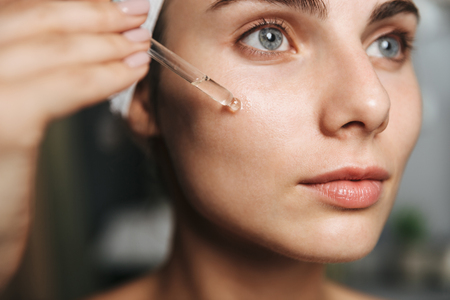Understanding Chemical Peels: What to Expect
If you’ve ever admired that unmistakable British glow and wondered about the secret behind so many radiant complexions, you may have already stumbled across the growing buzz surrounding chemical peels. In essence, a chemical peel is a professional skin treatment where a carefully formulated solution is applied to your face (or sometimes other areas), gently exfoliating away dull or damaged layers to reveal fresher, more luminous skin beneath. Across the UK, clinics typically offer a range of peels – from light, lunchtime glycolic or lactic acid options perfect for first-timers and those with sensitive skin, to deeper TCA or phenol peels reserved for tackling more stubborn concerns like pigmentation and fine lines. No matter which type you choose, each peel is designed to support your skin’s renewal process in a safe, controlled manner overseen by an experienced practitioner. It’s easy to see why chemical peels have become such a staple for Britons seeking that coveted fresh-faced look; they’re celebrated not just for their impressive results but also for their versatility and ability to suit different lifestyles and skin goals. Whether you’re prepping for a special occasion in London, hoping to boost your confidence before a seaside holiday, or simply looking to refresh your daily appearance, understanding what a chemical peel involves is the perfect place to start your journey towards healthier, more beautiful skin.
Consultation and Skin Assessment
Before embarking on your chemical peel journey, a thorough consultation and skin assessment with a trained professional is absolutely essential. In the UK, reputable clinics place great emphasis on understanding each client’s unique needs, which ensures that your treatment is both safe and effective. During your consultation, a qualified practitioner will evaluate your skin type, discuss your medical history, and listen carefully to your concerns—whether it’s pigmentation from those rare but intense British sunny spells, hormonal breakouts, or simply a desire for that radiant glow.
One of the hallmarks of British clinics is their inclusive approach to skincare. With the UK’s wonderfully diverse population, practitioners are highly experienced in tailoring chemical peels for all skin tones—from fair Celtic complexions to rich, deep hues. This bespoke attention helps minimise risks such as post-inflammatory hyperpigmentation or sensitivity reactions.
What Happens During a Consultation?
| Step | Purpose | British Clinic Approach |
|---|---|---|
| Skin Analysis | Identify skin type and specific issues (e.g., acne, sun damage) | Use of advanced imaging tools and an honest conversation about lifestyle factors like weather exposure or city pollution |
| Medical History Review | Check for contraindications (e.g., allergies, medications) | Thorough review in line with NHS guidelines to ensure safety |
| Treatment Planning | Select the right peel strength and formulation | Bespoke protocols reflecting British standards and diversity of skin needs |
The Importance of Personalised Advice
Your practitioner will guide you through what to expect before, during, and after the peel. They’ll also offer advice tailored specifically for the UK climate—such as adjusting your routine to cope with damp winters or sudden heatwaves. By investing time in this initial step, you set the stage for beautiful results while safeguarding your skin’s health. Always choose a clinic that values this personalised approach—it’s one of the key reasons why so many British clients achieve naturally glowing results from their chemical peels.
![]()
3. Pre-Peel Skincare Routine and Lifestyle Tips
Preparing your skin for a chemical peel involves more than simply booking an appointment; it’s about giving your complexion the best possible foundation to ensure optimal results. In the weeks leading up to your treatment, a gentle skincare routine is key. Consider switching to a mild, fragrance-free cleanser and avoiding abrasive scrubs or exfoliants, which can sensitise the skin. If you’re using products containing retinol, glycolic acid, or other active ingredients, it’s wise to pause them at least one week before your peel, as these can increase irritation post-procedure.
Sun Protection: A British Essential
Even with our famously unpredictable UK weather—think sudden sunny spells between showers—sun protection is non-negotiable. UV exposure can heighten sensitivity and affect healing after a peel. Make applying a broad-spectrum SPF 30 (or higher) part of your daily ritual, regardless of cloud cover. Don’t be fooled by grey skies; harmful rays still reach your skin. If you’re planning a countryside ramble or city stroll, consider wearing a wide-brimmed hat and seeking shade where possible to further shield your face.
Habits to Embrace Before Your Appointment
Hydration is your new best friend. Drink plenty of water in the days before your peel—it truly makes a difference in how your skin responds and recovers. Sleep also plays its part; aim for restful nights to keep stress at bay and encourage natural regeneration. For those who enjoy their evening cuppa or a glass of wine, try to limit caffeine and alcohol as both can dehydrate your skin.
Things Best Avoided
In the final days before your appointment, avoid waxing, threading, or any facial treatments that could irritate your skin’s surface. Similarly, steer clear of steam rooms or saunas—they may feel relaxing but can leave your skin vulnerable ahead of a peel. If you smoke, consider cutting back; smoking impedes circulation and slows down the healing process.
By following these simple yet effective British-centric tips, you’ll be setting yourself up for a smoother experience and beautifully refreshed results from your chemical peel.
4. What to Avoid Before Your Peel
Preparing for a chemical peel isn’t just about what you do—it’s equally about what you don’t do. In the UK, our unique climate and lifestyle habits add extra nuance to these pre-peel precautions. For those seeking that radiant glow, here’s an expert-driven guide on what British clients should steer clear of before their treatment.
Skincare Products to Pause
The weeks leading up to your peel are not the time to experiment with potent actives. Certain ingredients can heighten sensitivity or risk adverse reactions—especially in our cool, sometimes damp weather. Here’s a quick-reference table to help:
| Product/Ingredient | How Long to Avoid Before Peel | Why? |
|---|---|---|
| Retinoids (Retinol, Tretinoin) | 7 days | Increase skin sensitivity and risk of irritation |
| AHA/BHA Exfoliants (Glycolic, Salicylic Acid) | 5-7 days | Can over-exfoliate and compromise the skin barrier |
| Benzoyl Peroxide | 5 days | May cause excess dryness and irritation |
| Vitamin C Serums (High Concentration) | 3-5 days | Might sensitise skin before the procedure |
| Manual Scrubs & Peels | 7 days | Avoid double exfoliation; risk of microtears |
Lifestyle Habits & Activities: What to Skip
The British climate can be unpredictable—sometimes we’re dealing with chill winds, other times rare sunshine. Both extremes can affect your skin’s readiness for a peel. Here’s what else to avoid:
- Tanning (Sunbeds & Natural Sun): No sunbathing or fake tanning for at least 2 weeks prior; UV exposure increases risk of pigmentation.
- Waxing/Threading/Depilatory Creams: Avoid these facial hair removal methods for 1 week before your peel—they can leave skin too delicate.
- Intensive Exercise: Skip strenuous workouts 24 hours before your appointment; increased circulation can make your skin more reactive.
- Spa Treatments (Facials, Microdermabrasion): No other facial treatments for at least 1 week ahead of time.
- Alcohol Consumption: Avoid heavy drinking for 24 hours beforehand; alcohol dehydrates and sensitises the skin.
- Certain Medications: Speak with your clinician if you’re using antibiotics or acne medication, as some may need pausing.
Your British Climate Cheat Sheet
The ever-changing UK weather means even walking to your appointment could expose you to windburn or unexpected sun. A scarf and SPF are always wise—embrace the British habit of being prepared for anything!
5. Day of the Peel: Preparation and Expectations
The day of your chemical peel has arrived, and it’s perfectly natural to feel a flutter of anticipation mixed with excitement. For British clients, preparation is often about striking that perfect balance between practicality and comfort—after all, we know how to face new experiences with a dash of poise and a cup of calm. Here’s how to make sure you’re truly ready for your treatment, both inside and out.
What to Bring
Start by packing a small bag with essentials. Bring along your appointment confirmation, photo ID, and any aftercare products recommended by your clinic. If you’re someone who enjoys a bit of reading or listening to podcasts, pop a book or your headphones into your bag—it’s a lovely way to ease those pre-treatment nerves while waiting. Don’t forget a bottle of water; hydration is key for both body and skin.
What to Wear
Dress in loose, comfortable clothing—think soft jumpers, relaxed trousers, or even a favourite cotton tee. Avoid high collars or anything that might rub against your face post-peel. For many Brits, it’s second nature to check the forecast before heading out; if it’s sunny, bring a wide-brimmed hat or scarf for extra protection on your journey home (the British weather loves surprises!). Steer clear of makeup and heavy skincare on the morning of your peel—arrive with clean, bare skin as recommended by most UK practitioners.
How Brits Prepare for Clinic Visits
We have our own little rituals when visiting clinics: arriving punctually (but never too early), greeting staff with a polite smile, and perhaps enjoying a quick chat about the weather to break the ice. It’s also quite common to let friends or family know where you’ll be—just for peace of mind. If you feel anxious, don’t hesitate to ask questions upon arrival; British clinics are known for their welcoming approach and willingness to reassure clients.
Cultivating the Right Mindset
Your emotional preparation matters just as much as the practicalities. Approach your appointment with an open mind and realistic expectations; remember, this is about self-care, not perfection. Take comfort in knowing that many before you have experienced transformative results—and that you’re in expert hands. A calm mindset will help you embrace the process and enjoy the pampering experience that comes with professional British skincare treatments.
6. Aftercare Planning and Realistic Outcomes
As you approach the final stage of your chemical peel journey, thoughtful aftercare planning is essential—especially considering Britain’s famously unpredictable weather. Post-peel skin can be particularly sensitive, so it’s wise to prepare for the damp and chilly UK climate that may challenge your skin’s recovery. Layering up with a gentle, hydrating moisturiser is crucial, as central heating and cold winds alike can sap moisture from freshly treated skin. Always have a high-SPF sunscreen on hand, even on cloudy days, since UV exposure in the British Isles can still affect healing skin.
It’s also sensible to book your follow-up appointments with your practitioner before you leave the clinic. This ensures you receive professional guidance through every stage of the process and have any concerns addressed promptly—a hallmark of British thoroughness and care. Most reputable clinics will offer advice tailored to your unique needs, taking into account the local climate and your daily lifestyle.
Understanding the British approach to aftercare means setting realistic expectations: results appear gradually, and patience is a virtue. Expect some redness or flakiness initially; this is perfectly normal and usually resolves within a week or two. Rather than rushing results, embrace the slower pace—your complexion will thank you for it in the long run. And if you’re ever unsure, remember that British skincare professionals are just a phone call away, ready to provide calm reassurance and practical tips.


